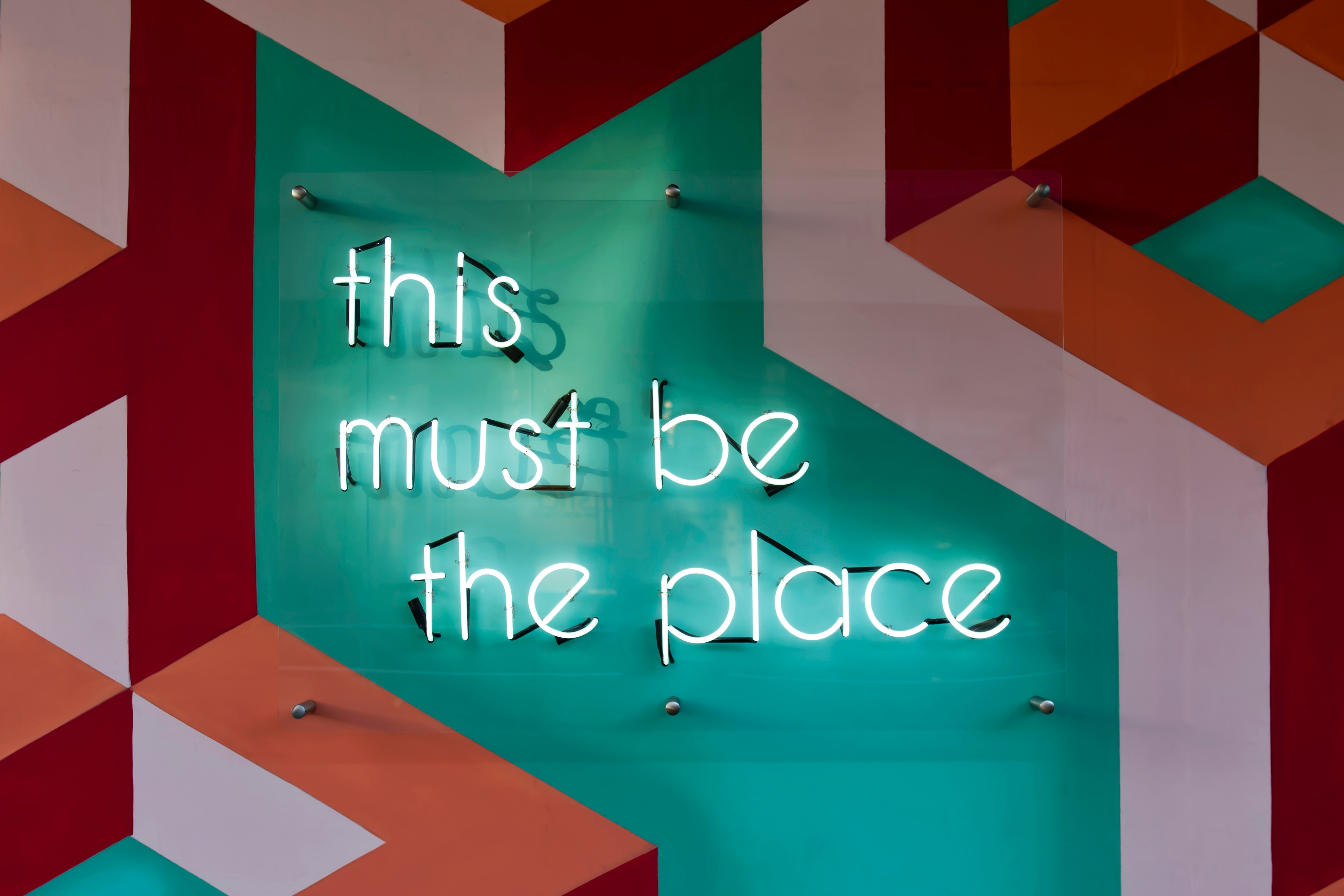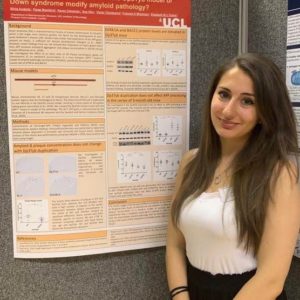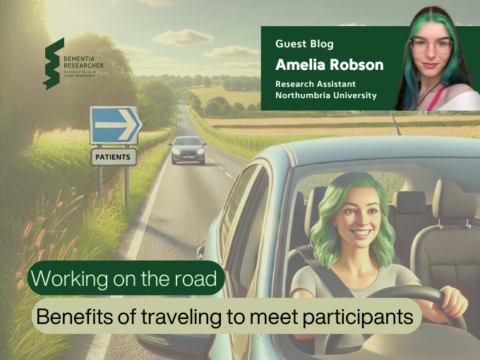This precise day, a year ago, I accepted the offer to start a PhD to investigate Alzheimer’s disease. This had been my goal since the very beginning of my undergraduate degree in neuroscience. Little did I know back then how challenging finding the perfect PhD was going to be. I am aware that other PhD students might have had different experiences compared to mine, but I want to share what I learned during my application journey.
Get as much research experience as possible
When my academic adviser told me I should seek research experience during my Bachelor degree, I thought he was exaggerating. Why should I worry about getting research experience, when there is a long time between now and a PhD? I luckily opted to follow his advice and contacted a PI asking if I could work (as a volunteer) in her lab during the summer. This experience was invaluable. In fact, I had the chance to learn a variety of techniques, but most importantly I demonstrated that I could independently approach PIs to seek research experience. This was definitely something that made me stand out when I applied for PhDs. Therefore, take any opportunity you have to gain research experience, even if it means dedicating a summer to work in the lab. You will thank yourself later.
Choose your final year and Master’s project wisely
To find a PhD straight after your studies, you need to make the most of the opportunities that your course gives you to gain research experience. Without knowing the techniques, you have little chances of being offered a place, especially when someone with relevant experience sits in front of the panel. Therefore, make sure to choose a research project that not only interests you, but also allows you to learn the skills you will want to use in your PhD. If you are unsure about which techniques and methods you enjoy the most, choose a project that involves a variety of them. One recommendation is not to base your choice on the fame of the supervisor, thinking that it will make it easier to get a PhD or a publication. Publications will come depending on your findings and they will keep you as a PhD student only if they get funding. If you cannot get the experience you need during your studies, you can opt to find an RA job first and then apply for a PhD. Personally, I considered this an option if I could not secure the PhD that I wanted. I know that for others this choice turned out to be successful and they would probably recommend it. However, getting an RA position is almost as hard as obtaining a PhD. So, do not choose this path because you think it is the easiest option.
When should I start applying?
Once you know that you want to do a PhD, the answer is simple: as soon as possible.

Photo by Markus Winkler on Unsplash
I sent my first PhD applications at the beginning of my final year of undergrad. I had no idea of what sort of project I was interested in and I soon realised I needed more time to decide. So, I opted to do a Master’s to give myself time to figure out what I wanted to research in my PhD. On the induction day, we were told that we had to start applying immediately because most deadlines are in autumn. I could not believe it. I was doing that course to understand what I wanted to investigate and learn the relevant techniques, and on the first day they were telling me I had to start applying. I easily came to the conclusion that I would have to wait until I felt ready, a decision that I would soon regret. In fact, confidence in your abilities is something that you can only learn by getting out of your comfort zone, searching for projects, writing applications and practising for interviews.
Gather as much information as possible
There are a number of resources that you can use when looking for a PhD. Firstly, there are specific websites that publish almost all PhDs available, such as Find A PhD. I recently found out about the power of Twitter, especially in the field of dementia research. Many groups will use Twitter to advertise available positions, therefore, I strongly recommend you consider joining Twitter and following the profiles of researchers, labs and organisations that are active in the research areas that interest you. Also, your university will have a careers centre that you can consult to write applications and check your CV. Furthermore, if you have a tutor, talk to them and ask for tips. If you are doing a lab based project, ask the lab members about their experiences in finding a PhD. Basically, make the most of the opportunities that your course gives you.
Trial and error makes you (nearly) perfect
There is only so much you can learn from reading and talking to others. I learned by trial and error what made my applications successful.
When writing an application, make sure to stress your research skills and academic successes. Do not be afraid to sound too confident and to highlight what you are good at: who reads your application is looking for the best candidate. You should also make the application personal, by showing your interest in that project and that you are not sending the same application to every group. Another thing that helped me when I was applying for my PhD was to arrange a call with the supervisor to discuss the project. Not only does this show that you are passionate about their research, it also gives you the chance to ask questions and understand more about the project, enabling you to be accurate when talking about the project in your application and interview. Ultimately, tell the reader about your career aims and how this PhD will allow you to achieve them.

Photo by Tim Mossholder on Unsplash
Rehearse
My first interview was during my final year of undergrad. I had little to no research experience and I found myself in a room with older candidates, way more skilled than me. I panicked and I did not give a single sensible answer in front of the panel. I left the room feeling like crying. This could have been avoided if only I had prepared. Exactly! You should prepare for interviews. Just like any other, interviewing is a skill you can develop. Trust me, when the emotions are high, improvisation is rarely successful. Instead, if you know what questions they are likely to ask you, you can prepare some answers and rehearse them before the big day. You can find out the sort of questions you will be asked on some websites, such as Find A PhD, by talking to academics and researchers, and from experience. Furthermore, you can also schedule to have a mock interview at your university’s career centre. Of course, the panel might ask you a question that you did not prepare for, but you will be able to answer with confidence when you know the answer to the remaining questions.
Do not fear rejection
I tell you from experience, I know how hard it is to never hear back or always being told that someone else is better than you. Especially when you have always been successful in your studies, failing is hard. But you should not fear rejection, because it does not mean that you are not good enough, that they did not like you and that you are not a good researcher. It means that this was not the right project for you. When I look back at my unsuccessful applications, I am glad they went this way. Those projects were not what I wanted and I would have ended up regretting it down the line. I was once in an interview when I realised it wasn’t the right project for me and they realised I was not who they were looking for either.
Another important point when applying for a PhD, is finding a supervisor and a team that are good for you. Bear in mind that you will have to work with them for three or more years. The interview is an opportunity for the supervisor to assess if they like you, but it is also a good chance for you to decide if you like them.
So, failing taught me what to look for in a PhD and what I needed to avoid. Terrible interviews in which I was feeling anxious prepared me to be calm when the right opportunity finally came.
Enjoy the experience
Despite all the struggles and difficulties, I eventually managed to secure myself the project that I really wanted. From the moment I read the advert for this project, I knew it was different compared to the others. It was on a topic that interested me, with methods that I knew, as well as amazing techniques that I had never tried before. When I had my interview, I immediately felt welcomed by the team and I had a very positive impression of the supervisor.
However, I could never have found this PhD if I did not go through a number of unreplied applications and unsuccessful interviews. It does not matter if you are writing your first application or your tenth, take each one as an opportunity to learn. The truth is that failure taught me more than any other success, and when I look back I am glad it went this way.
Author
Silvia Anderle is a PhD student at the University of Sussex investigating the link between APOE and neurovascular coupling in AD. First-class BSc Neuroscience (Hons) from the University of Sussex and Distinction in MSc Dementia from UCL. Winner of the prize for the best overall performance in Neuroscience at the University of Sussex. Assistant to her plants, who are pretty popular on instagram.
You can follow Silvia on Twitter Follow @AnderleSilvia

 Print This Post
Print This Post





